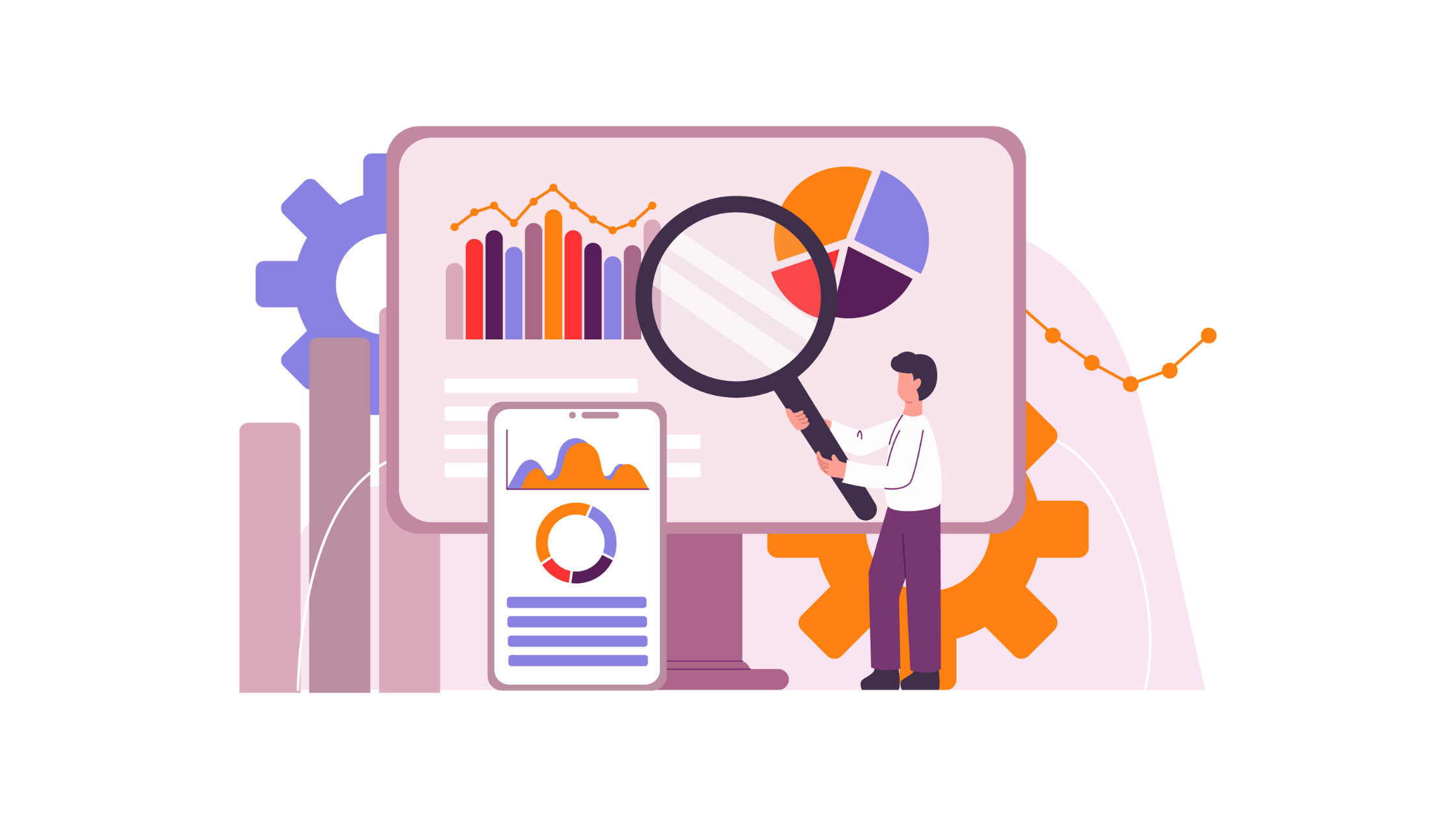Gone are the days of businesses having to make decisions based on estimates and guesswork, hoping for the best and praying for success. Now, businesses in all industries are using data to their advantage, and it’s easy to see why. With more information being collected about customers and target markets than ever before, businesses can transform and analyse information, using it to their advantage. Using data from various sources, businesses can use tools to make decisions based on evidence, rather than assumptions or gut instincts. It’s an effective way of finding patterns, trends and insights, all of which can support business decisions.
How Businesses Benefit from Data Analytics
Data analytics gives businesses valuable insights that can drive growth, innovation and competitive advantage. By analysing large amounts of data collected from various sources – such as customer interactions, sales transactions and market trends – businesses can gain a deeper understanding of how they operate, what your customers want and market dynamics. With this information, it’s a lot easier to make informed decisions, identify opportunities for improvement and optimise business strategies for maximum effectiveness.
Businesses can also benefit from data analytics by being able to uncover useful patterns and trends, allowing you to identify correlations, preferences and opportunities that may have otherwise gone unnoticed. This can help a business to anticipate market shifts, adapt to changing consumer behaviour and stay ahead of the competition. It’s also a lot easier to personalise products, services and marketing efforts when you know what your customers’ specific needs and preferences are. Data analytics can also help businesses to optimise operations and improve efficiency by identifying areas for cost savings, streamlining processes and finding inefficiencies. All of this helps with decision-making, business growth and standing out amongst competitors.
How to Use Data Analytics in Business Decision-Making
When it comes to marketing, data analytics can help you to better understand customer habits, wants and preferences. With this information, you can tailor your marketing efforts to them, knowing that they are likely to pay attention to what you’re offering. This is a good way to provide an individual customer experience, boosting the ROI of your marketing strategy. Data analytics is also beneficial for the day-to-day running of a business. Using data, it’s a lot easier to find areas that could be improved, such as speeding up various processes or using resources in a more efficient way.
A lot of a business’ success comes down to sales, and this is another area that data analytics can help with. By analysing data, you can improve your sales process and, in turn, make the business more successful. For example, considering how customers act can help you to tailor your strategy to them, increasing the chances of someone transforming from a lead into a paying customer. Similarly, data can give you an insight into what your upcoming sales are likely to be, what stock you need to have and how much you should be charging.
How SMEs Can Benefit From Data Analytics
A lot of people make the mistake of assuming that data analytics are only important for large, established brands. But, this isn’t always the case, as data analytics can be hugely advantageous for SMEs when it comes to decision-making.
- Improved Decision-Making – It’s not always easy to make a decision as a relatively new or small business, but data can help. By looking at the most important metrics, you can make the right decisions without a second thought. For example, an ecommerce shop can use data to keep on top of inventory, ensuring that there’s always enough stock to cater to customer demands and potentially busy periods. Instead of relying on guesswork and hoping areas of improvement will become obvious, SMEs can use facts to improve decision-making and make improvements the moment they are needed.
- Enhanced Market Research – It’s important for an SME to understand their customers, competitors and target market, and data analytics can help with that. Market research is a key part of developing an effective marketing strategy, one that’s tailored to a specific target audience. Data can be used to segment customers – separating them things such as age, location, demographic or purchasing behaviour – and their needs identified, enabling products and services to be tailored accordingly.
- Optimised Business Operations – Day-to-day business operations can be improved using data, especially when it comes to optimising various business processes. Data can highlight ways that SMEs can reduce costs, improve the quality of services and products, and boost efficiency, many of which might not have been obvious without data analytics. For example, improved quality control can reduce damages, whilst also enhancing customer service and cost-effectiveness.
- Insights Into Customers – By using specialised tools, SMEs can analyse customer data, and ensure their needs and preferences are being catered to. It’s a good way to get to know your customers better, including their behaviour and pain points. This leads to a personalised and tailored service, which can result in happier and more loyal customers. Plus, when you understand your customers, it’s a lot easier to create effective marketing campaigns that will grab their attention and engage them.
At Profici, we are firm believers in the importance of data, which is why we use insights and analytics to help businesses make the right decisions. Whether you are focusing on business growth or you want to tap into a new market, data analytics ensure that you are using facts and figures. To find out more about the role of data analytics in business decision-making, get in touch with our knowledgeable teams.

Latest Posts
-

The 4 Types of Corporate Strategy to Help Grow Your Business
-

Organic Growth for Your Business: What Is It & 9 Proven Strategies
-

Running a Successful Business: 8 Pro Tips
-

Become A Competitor ‘Mind-Reader’: How To Take Your Competitor Analysis To The Next Level
-

How to Stress Test Your Value Proposition: Delivering Uniqueness Versus The Competition
-

Nurture and Sustain Team Health
-

Prune Your Leadership Team to Encourage Future Growth
-

Three Ways to Build Great Teams
-

Welcoming Matt Lumb as the New CEO of Profici
-

What to do when you Miss your Sales Goals

